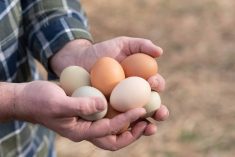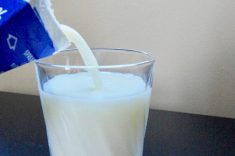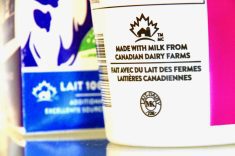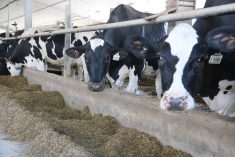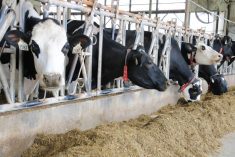Bill C-282, which would amend the Foreign Affairs, Trade and Development Act, would ensure future trade deals do not weaken or eliminate the import controls that allow Canada’s supply managed sectors to function.
On March 9, the Standing Committee on International Trade held a hearing on the bill, and the National Farmers Union recommended full support.
Supply management is a unique Canadian institution that provides stability in five perishable food sectors: dairy, broiler chickens, laying hens, turkeys and hatching eggs. By controlling the amount produced, it prevents shortages and keeps imports from flooding our market.
Read Also

Farm equipment market unlikely to pick up
North America’s farm machinery sales have been slow and uncertain thanks to tariffs and trade disruption. There’s not a lot of hope for change in 2026.
Farm gate prices reflect the actual cost of production through a transparent and evidence-based calculation.
Canada does not experience wide fluctuations in supply and prices, and our system does not require massive government subsidies that other countries must pay to support farmer incomes in these sectors.
As former NFU president and dairy farmer Jan Slomp said during the hearing, “Concerning the possible ‘greedflation’ that is taking place in the grocery sector, the best answer we can have is a regulated system in which prices are transparent and visible.
“We cannot allow further deterioration of supply management, and keeping supply management healthy does not have to be at the expense of other commodities that need more trade.”
While the risks of serious supply chain problems in the economy mount, our supply management system protects both farmers and consumers.
As an example, Slomp noted November 2021’s flooding in British Columbia’s lower mainland, which devastated many of that province’s dairy and poultry farms.
“This inundation of water and complete elimination of the functioning of farms did not disrupt product supply to consumers from the supply-managed sector,” Slomp noted. “Supply management organization, provincially and interprovincially, was responsible for the steady supply to consumers throughout this emergency.”
Loss of farmers is also a risk to the food system.
READ MORE: Protecting our farms for the long term
Slomp noted that “the average age (of) farmers in Canada is very high, and yet in supply management there is a healthier situation and it is because of the commitment to the long-term sustainability in this system.”
Supply management has already suffered damage through trade deals. If future trade negotiators are allowed to remove even more market share from our supply managed sectors, young people who aspire to become dairy, egg, chicken or turkey farmers will not be compensated, but their future will be compromised and Canada would be in danger of losing its next generation of farmers in these sectors.
By passing Bill C-282, Parliament will strengthen the supply management system and ensure it can continue to provide an income to Canadian farmers, support jobs in Canadian processing plants and contribute to agricultural research in Canada. Income from dairy, poultry and egg production will be multiplied in local communities where farmers and plant workers spend their incomes, generating economic activity in rural communities and enabling their prosperity.
Slomp notes that many circumstances have changed over the years, from trade agreements to weather to aging farmers to the consolidation of the grocery sector.
Supply management continues to protect consumers and farmers, but it must be strengthened after decades of loss to the many international trade agreements.
Slomp, on behalf of the NFU, recommends that Bill C-282 be passed without amendment as a matter of national interest.



